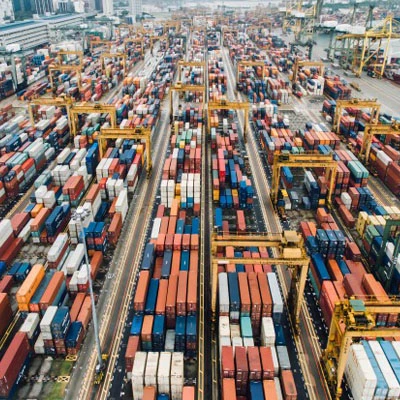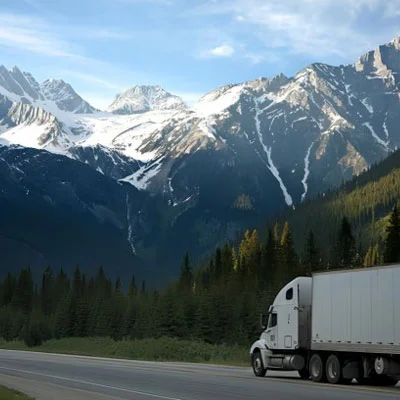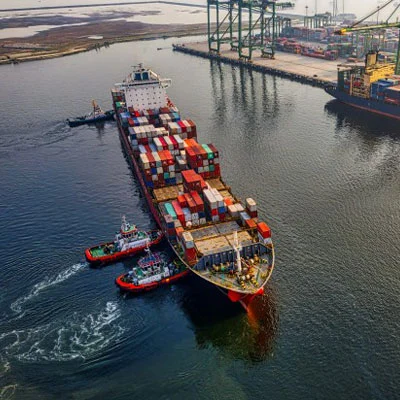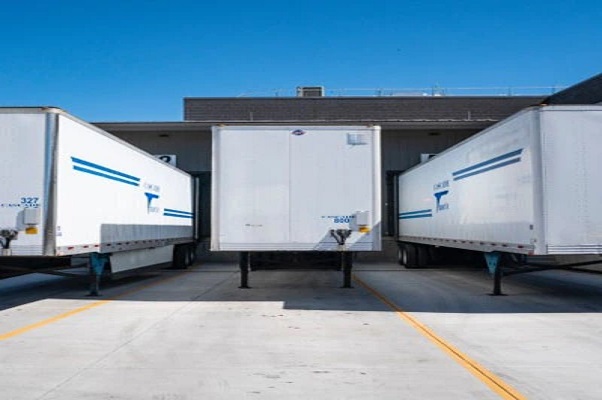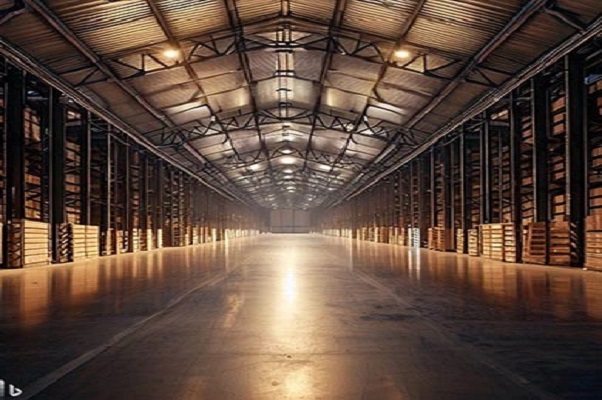+
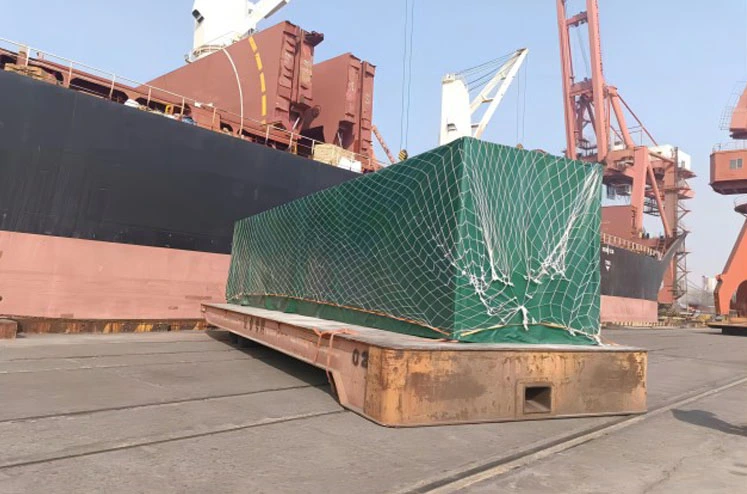
Our project cargo shipping service aims to provide customized solutions for your customers' unique cargo transportation needs. We can offer a range of services, including logistics planning, specialized equipment rental, customs clearance, and on-site coordination.
Our project forwarding service can cater to a variety of industries, such as oil and gas, renewable energy, mining, and construction, among others. Our freight forwarding services team have expertise in handling different types of cargo.
To ensure a seamless and efficient transportation process, we employ advanced tracking and monitoring technology, as well as experienced personnel who can handle unexpected situations and adjust plans accordingly.
As a professional project shipment supplier, we have expertise in handling complex and oversized cargo, with specialized equipment and knowledge required for safe and efficient transportation.
We plan and coordinate the transportation process with precision, taking into account all factors such as routes, permits, customs clearance, and timelines, to ensure that the cargo reaches its destination as efficiently as possible.
We employ advanced project cargo technology for tracking, monitoring, and communicating with clients, which ensures transparency, efficiency, and timely updates throughout the transportation process.
We provide on-site coordination, ensuring that the cargo is handled efficiently and safely at each step of the transportation process.
We have in-depth knowledge of the industries we serves so we can provide tailored project shipment solutions to meet the unique needs of each industry.
Project cargo refers to specialized shipments that are unique in nature and require careful planning, handling, and transportation. Here are some examples of project cargo:
Large Machinery: This can include heavy equipment such as turbines, generators, compressors, and industrial machinery used in various industries like energy, manufacturing, and construction.
Oversized Structures: Examples include components of infrastructure projects like bridges, gantry cranes, steel structures, and pre-fabricated sections of buildings.
Oil and Gas Equipment: This category encompasses items like drilling rigs, offshore platforms, pipelines, and modules for refineries and petrochemical plants.
Wind Turbines: Transportation of wind turbine components, including blades, towers, and nacelles, is a common example of project cargo, especially for renewable energy projects.
Aerospace Components: Shipping large aircraft parts, such as wings, fuselage sections, and engine components, for assembly at different locations or for maintenance and repair operations.
Mining Equipment: This includes heavy machinery used in mining operations, such as excavators, haul trucks, and processing plants.
Infrastructure Projects: Transporting materials and equipment for large-scale construction projects like dams, highways, railways, and ports.
Shipments for Events: Transporting equipment and materials for events like concerts, exhibitions, and sporting events, including stage setups, lighting rigs, and specialized displays.
Power Plant Components: Transporting boilers, turbines, generators, and other components for power plants, including those for conventional and renewable energy sources.
Industrial Plant Components: Shipping specialized equipment and machinery for industrial plants, such as chemical processing equipment, reactors, and distillation columns.
These examples illustrate the diverse range of goods that fall under the category of project cargo, each requiring unique logistical solutions tailored to their size, weight, and other specific requirements.
Project cargo encompasses various types of specialized shipments that require careful planning, handling, and transportation due to their unique characteristics. Here are some common types of project cargo:
Heavy Lift Cargo: This includes exceptionally heavy items that require specialized equipment such as cranes or heavy-duty forklifts for loading, unloading, and transportation. Examples include large machinery, industrial equipment, and oversized structures.
Oversized Cargo: Oversized cargo refers to items that exceed standard dimensions, making them challenging to transport using conventional means. This category includes components of infrastructure projects, wind turbines, aerospace parts, and other large-scale equipment.
High-Value Cargo: High-value cargo includes shipments with significant financial worth, such as aerospace components, high-end machinery, and sensitive equipment. These shipments often require enhanced security measures and specialized handling to prevent damage or theft.
Time-Sensitive Cargo: Time-sensitive cargo refers to shipments with strict delivery deadlines, often associated with construction projects, events, or manufacturing operations. These shipments require meticulous planning and coordination to ensure timely delivery.
Hazardous Cargo: Hazardous cargo comprises goods that pose potential risks to health, safety, property, or the environment during transportation. Examples include chemicals, explosives, radioactive materials, and flammable substances. Handling and transporting dangerous goods shipping requires compliance with stringent regulations and safety protocols.
Temperature-Controlled Cargo: Temperature-controlled cargo includes perishable goods, pharmaceuticals, and other items that require specific temperature conditions to maintain their quality and integrity during transportation. This category also encompasses refrigerated or insulated containers used to regulate temperature levels.
The demand for project cargo transportation services is influenced by various factors across different industries and regions. Here are some key drivers of demand for project cargo service:
Infrastructure Development: Increasing investments in infrastructure projects, such as roads, bridges, railways, ports, and airports, drive the demand for transporting heavy equipment, construction materials, and oversized components.
Energy Sector Projects: Growth in energy-related projects, including oil and gas exploration, renewable energy installations (such as wind farms and solar parks), and power plant construction, necessitates the transportation of specialized equipment, machinery, and components.
Industrial Expansion: Expansion projects in industries like mining, manufacturing, and petrochemicals require the transportation of heavy machinery, processing equipment, and plant components to support capacity expansion or new facility construction.
Construction Activities: Large-scale construction projects, including commercial buildings, residential complexes, and mixed-use developments, generate demand for transporting construction materials, prefabricated components, and heavy machinery to construction sites.
Global Trade and Logistics: International trade drives the demand for project cargo transportation, particularly for oversized or heavy shipments moving between different countries or regions. This includes transporting components for infrastructure projects, industrial machinery, and equipment for energy and mining sectors.
Project Scope and Requirements:
Define the scope of the project cargo, including dimensions, weight, quantity, and any special handling requirements.
Identify any specific regulations or restrictions governing the transportation of the cargo.
Risk Assessment and Planning:
Conduct a risk assessment to identify potential hazards and challenges associated with transporting the project cargo.
Develop a comprehensive transportation plan that addresses logistics, route selection, and contingency measures.
Documentation and Compliance:
Ensure all necessary permits, licenses, and customs documentation are obtained and in compliance with local and international regulations.
Verify that the cargo is properly classified and labeled according to regulatory requirements, especially for hazardous materials.
Packaging and Securing:
Ensure the cargo is properly packaged, secured, and protected to prevent damage during transportation.
Use appropriate packaging materials, such as crates, containers, or cushioning, to mitigate the risk of shifting or impact.
Transportation Equipment and Resources:
Select suitable transportation equipment, such as flatbed trucks, heavy-lift vessels, or specialized aircraft, based on the cargo specifications and route requirements.
Arrange for any necessary equipment, such as cranes, forklifts, or rigging gear, to facilitate loading, unloading, and handling of the cargo.
Logistics Coordination:
Coordinate logistics activities with all stakeholders involved in the transportation process, including suppliers, carriers, freight forwarders, and customs authorities.
Communicate effectively with the transportation team to ensure timely pickup, delivery, and transit of the project cargo.
Safety and Security Measures:
Implement safety protocols and security measures to protect personnel, equipment, and cargo throughout the transportation process.
Conduct regular inspections and audits to ensure compliance with safety standards and regulations.
Contingency Planning:
Develop contingency plans to address potential disruptions or emergencies, such as adverse weather conditions, equipment failures, or delays in transit.
Identify alternative routes, transportation modes, or suppliers to mitigate the impact of unforeseen events.
Communication and Reporting:
Maintain regular communication with all stakeholders to provide updates on the status of the project cargo and address any issues or concerns.
Document all transportation activities, including loading, transit, and unloading, and maintain records for compliance and reporting purposes.
Post-Delivery Evaluation:
Conduct a post-delivery evaluation to assess the effectiveness of the transportation plan and identify areas for improvement.
Solicit feedback from stakeholders and incorporate lessons learned into future project cargo management processes.
Expertise and Experience: Hansa has extensive experience and expertise in handling project cargo shipments across various industries. Our team of professionals understands the unique requirements and challenges associated with transporting oversized, heavy, and specialized cargo.
Global Network: Hansa has a vast global network of partners, agents, and carriers, allowing us to provide comprehensive logistics solutions tailored to the specific needs of each project. This network ensures seamless coordination and reliable transportation of project cargo to destinations worldwide.
Specialized Equipment and Resources: Hansa has access to a wide range of specialized equipment and resources, including heavy-lift vessels, flatbed trucks, cranes, and rigging gear, to handle even the most complex project cargo shipments with efficiency and precision.
Customized Solutions: Hansa International works closely with clients to understand their unique requirements and develop customized transportation solutions that meet the specific project objectives. Whether it's route planning, packaging, or documentation, Hansa ensures that every aspect of the shipment is carefully managed to optimize efficiency and minimize risks.
Compliance and Safety: Hansa adheres to strict compliance standards and safety regulations to ensure the safe and secure transportation of project cargo. We are well-versed in handling hazardous materials, obtaining necessary permits, and navigating customs procedures to ensure seamless transit and delivery.
Customer Service Excellence: Hansa prioritizes customer satisfaction and provides personalized support and assistance throughout the transportation process. Our dedicated team of logistics experts is available to address any inquiries, concerns, or challenges promptly, ensuring a positive experience for clients from start to finish.
What Is Project Cargo Shipping?
Project cargo shipping refers to the transportation of large, heavy, and oversized items that are unique in nature and require specialized handling, equipment, and logistics solutions. Unlike standard cargo shipments, which typically involve transporting standardized containers or palletized goods, project cargo shipping involves moving individual pieces of equipment, machinery, structures, or components that are often too large or complex to fit into standard shipping containers.
Key aspects of project cargo shipping include:
Route planning to identify the most efficient and cost-effective transportation routes, considering factors such as infrastructure, regulations, and environmental conditions.
Selection of suitable transportation equipment and handling gear, such as heavy-lift cranes, flatbed trucks, and specialized vessels, to accommodate the size, weight, and dimensions of the cargo.
Compliance with regulatory requirements, including obtaining permits, licenses, and certifications for transporting hazardous materials or oversized cargo.
Packaging and securing of the cargo to prevent damage during transit, often using custom-built crates, containers, and securing mechanisms.
Coordination with various stakeholders, including shippers, carriers, freight forwarders, customs authorities, and project owners, to ensure smooth execution of the shipping process.
What Do Project Cargo Forwarders Do?
Project cargo forwarders play a crucial role in facilitating the transportation of large, heavy, and specialized cargo for various industries and projects. Here's what project cargo forwarders typically do:
Specialized Logistics Planning: Project cargo forwarders are experts in planning and coordinating the logistics of transporting oversized and heavy cargo. They assess the unique requirements of each shipment, considering factors such as size, weight, dimensions, and special handling needs.
Route Optimization: Project cargo forwarders identify the most efficient and cost-effective transportation routes for moving the cargo from its origin to its destination. This involves considering factors such as infrastructure, regulations, transportation modes, and potential obstacles along the way.
Carrier Selection: Project cargo forwarders work with a network of carriers, including shipping lines, air freight forwarder, trucking companies, and rail operators, to select the most suitable transportation options for each shipment. They negotiate rates, arrange bookings, and coordinate the movement of cargo with the chosen carriers.
Customs Clearance: Project cargo forwarders handle all necessary customs documentation and procedures to ensure compliance with import/export regulations. This includes obtaining permits, licenses, and clearances required for transporting specialized cargo across international borders.
Packaging and Securing: Project cargo forwarders provide expertise in packaging and securing the cargo to prevent damage during transit. They may arrange for custom-built crates, containers, or other specialized packaging solutions tailored to the specific requirements of the cargo.
Risk Management: Project cargo forwarders assess potential risks associated with transporting oversized and heavy cargo, such as adverse weather conditions, route restrictions, or equipment failures. They develop contingency plans and mitigation strategies to minimize disruptions and ensure the safe delivery of the cargo.
Coordination and Communication: Project cargo forwarders act as central coordinators, liaising with all parties involved in the transportation process, including shippers, carriers, freight forwarders, customs authorities, and project owners. They provide regular updates and communicate any changes or challenges that may arise during transit.
On-Site Support: Project cargo forwarders may provide on-site support during loading, unloading, and transportation to ensure smooth execution of the shipping process. They may deploy specialized equipment, such as cranes or forklifts, and oversee the handling and securing of the cargo to ensure compliance with safety standards.

